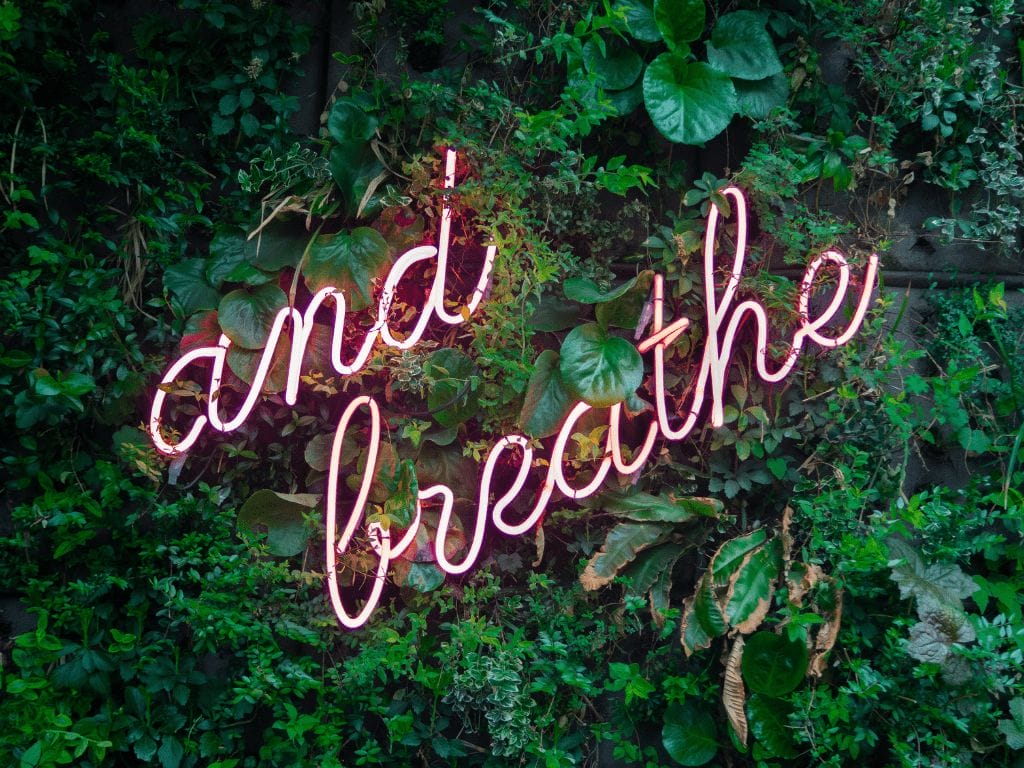Treat Your Anxiety & Mental Health with Deep Breathing Exercises
You’ve most likely listened to the guidance to take a deep breath if you’ve ever before really felt nervous. In fact, there’s a good rationale behind this idea, as breathing workouts are a healthy method to manage anxiety (via Mayo Center). Deep breathing is one of the best ways to lower stress in the body. This is because when you breathe deeply, it sends a message to your brain to calm down and relax. The brain then sends this message to your body. In this article by Tropika Club, we will explain how you can use diaphragmatic breathing to help you manage your mental health.
Table of contents
- No Time to Read? Here’s a Snappy Summary of This Article
- The connection between breathing and your entire body
- Numerous forms of breathing workouts function to reduce stress and anxiety
- What Is Diaphragmatic Breathing?
- How to do Belly Breathing
- Benefits of deep breahting over your mental health
- Conclusion
No Time to Read? Here’s a Snappy Summary of This Article
- Introduction: The blog post explains how deep breathing exercises can help with anxiety and mental health, and provides some tips and examples of how to do them.
- The Benefits of Deep Breathing: The blog post lists some of the benefits of deep breathing, such as lowering stress hormones, improving blood circulation, enhancing brain function, and boosting immunity.
- The Science Behind Deep Breathing: The blog post describes how deep breathing activates the parasympathetic nervous system, which is responsible for the relaxation response, and how it balances the sympathetic nervous system, which is responsible for the fight-or-flight response.
- The Types of Deep Breathing Exercises: The blog post introduces four types of deep breathing exercises that can be done anywhere and anytime, such as diaphragmatic breathing, box breathing, 4-7-8 breathing, and alternate nostril breathing.
- The Tips for Deep Breathing: The blog post gives some tips on how to perform deep breathing exercises effectively, such as finding a comfortable and quiet place, relaxing the body, focusing on the breath, and doing it regularly.
- The Conclusion: The blog post concludes by encouraging the readers to try deep breathing exercises as a natural and simple way to improve their mental health and well-being.
The connection between breathing and your entire body
Just how you take a breath influences your whole body, which is why it’s important to be knowledgeable about how you are doing it. Deep breathing is just one of the very best ways to help your body relieve tension. According to experts, when you take a deep breath, you are informing your brain to kick back, which subsequently provides the message to your body (by means of College of Michigan Medicine). Taking deep breaths when you feel worried can lower hypertension and a fast heart price.
On the other hand, shallow breathing, which uses the breast muscular tissues rather than the diaphragm to do most of the breathing, can enhance stress and anxiety due to the fact that the reduced part of the lungs do not obtain sufficient oxygen. This lack of oxygen usually brings about anxiety as well as stress and anxiety (using Harvard Health And Wellness Posting).

Numerous forms of breathing workouts function to reduce stress and anxiety
Numerous forms of breathing workouts function to reduce stress and anxiety. Some of them entail movement, yet others are rather straightforward as well as can be done virtually anywhere.
One way to reduced anxiousness is to concentrate on your exhalation while taking deep breaths. According to Healthline, breathing out is the part of breathing that signals the body to relax. Begin with a detailed exhale and allow your lungs fill back up naturally for several mins. Another method to manage stress and anxiety is to exercise diaphragm breathing, which enables your lungs to load entirely with oxygen. A great way to exercise this workout is to relax on your back with one palm on your breast as well as one on your stubborn belly. Breathe in by utilizing your stomach muscles while keeping your chest still. Exercise for 10 minutes a couple of times a day.
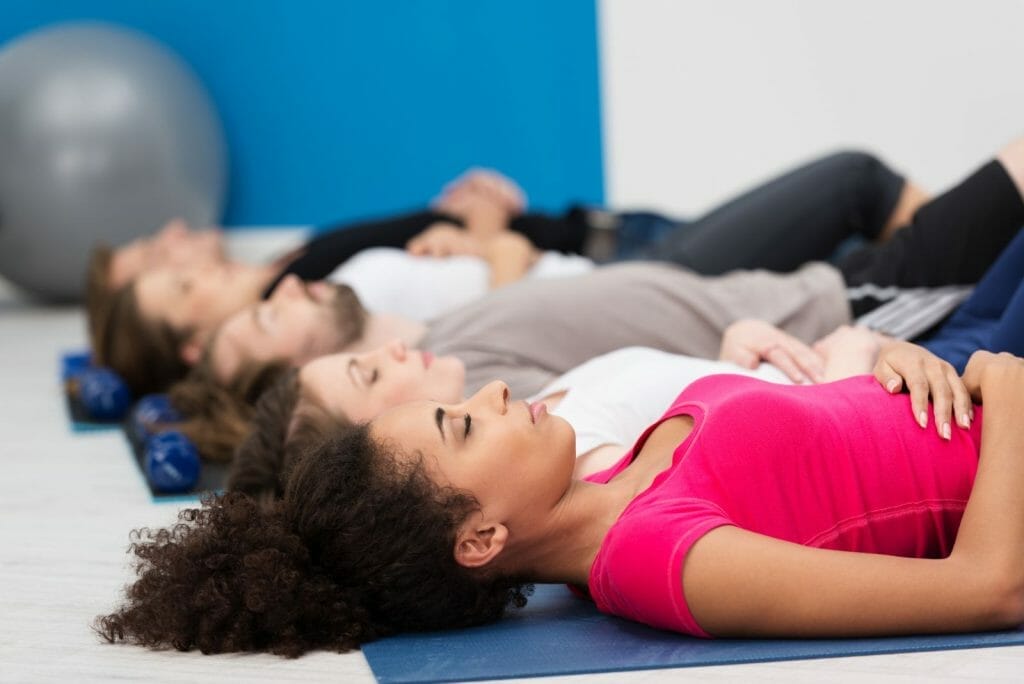
What Is Diaphragmatic Breathing?
Many individuals get involved in the habit of breathing only with their chests. Restrictive clothing, bad pose, anxiety, as well as problems that compromise the muscle mass associated with breathing all add to chest breathing. Some research recommends that diaphragmatic breathing might also help individuals with problems like persistent obstructive pulmonary illness (COPD). Meanwhile, a report published in the Cochrane Database of Organized Evaluations in 2012 located that while breathing workouts boosted functional exercise capacity in people with COPD compared to no treatment, no constant effects could be discovered on difficulty breathing (dyspnea) or quality of life.
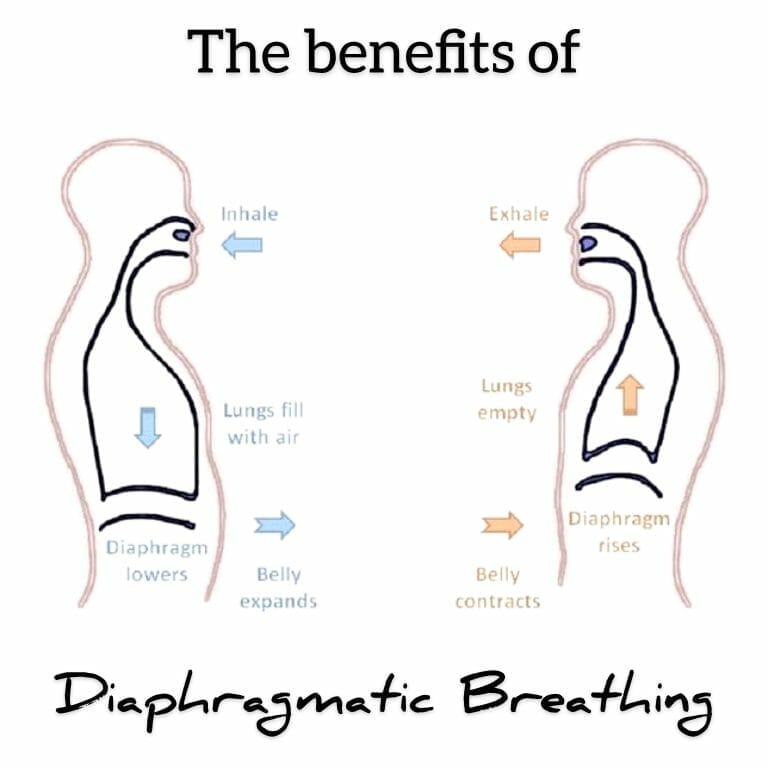
How to do Belly Breathing
cate a comfortable, quiet place to sit or lie down. You can try it being in a chair, sitting crosslegged, or resting on your back. If you’re sitting in a chair, your knees need to be bent as well as your head, neck, and shoulders, kicked back. Although you do not need to sit straight as an arrow, you likewise do not wish to slouch. If you’re lying down, you can put a little cushion under your head and one under your knees for comfort. You can additionally simply keep your knees curved.
Place One Hand on Your Upper body. If you’re involving your diaphragm, this hand should continue to be reasonably still (compared to the hand you’ll place on your tummy) as you take in and out. Location the Various Other Hand Below Your Ribcage. The other hand needs to be placed in the epigastric location, which is right over the navel. Having a hand below will enable you to feel your diaphragm move as you take a breath.
Breathe in slowly via your nose. The air entering into your nose must move downward to ensure that you feel your stomach increase with your various other hand. Don’t require or push your stomach muscles outward. The activity (and also the air movement) should be smooth, and it ought to ideally primarily involve your epigastric area. You shouldn’t seem like you’re forcing your reduced belly out by clenching your muscles.
The hand on your breast need to stay reasonably still. Allow your stomach kick back. You must feel the hand that mores than it drop inward (towards your spinal column). Do not compel your belly inward by squeezing or squeezing your muscles. Exhale gradually through slightly pursed lips. The hand on your chest need to remain to remain relatively still.
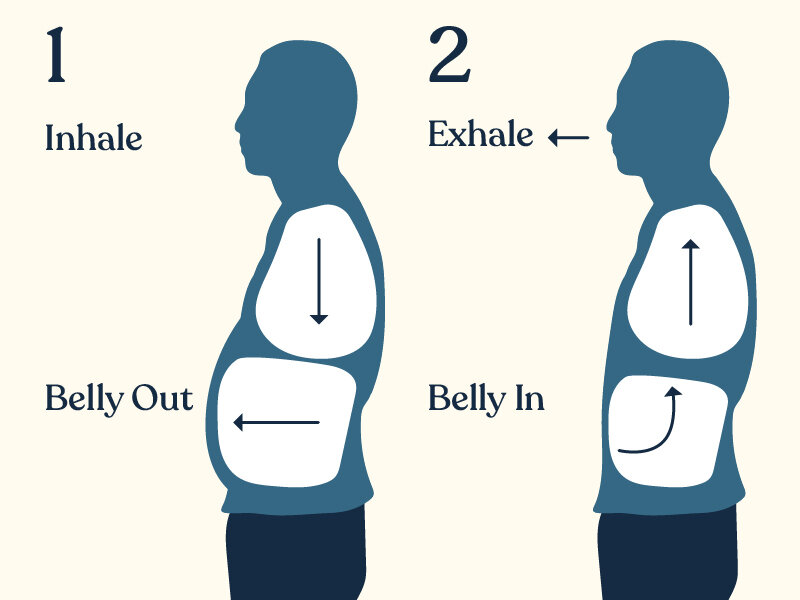
Read Also:
Control Your Time With This Helpful Advice
Benefits of deep breahting over your mental health
The calm that comes over you as you breathe deeply with your diaphragm can positively impact your cardiovascular health. It’s an extension of the “relaxation response,” which induces slowed breathing, a slowed heart rate, and ultimately, better blood pressure control. Resting quietly and also breathing deeply while concentrating your attention only on your breath for about 20 mins can additionally calm rattled nerves. So the following time you really feel a wave of anxiousness coming on, spend some time to de-stress by taking some deep breaths.
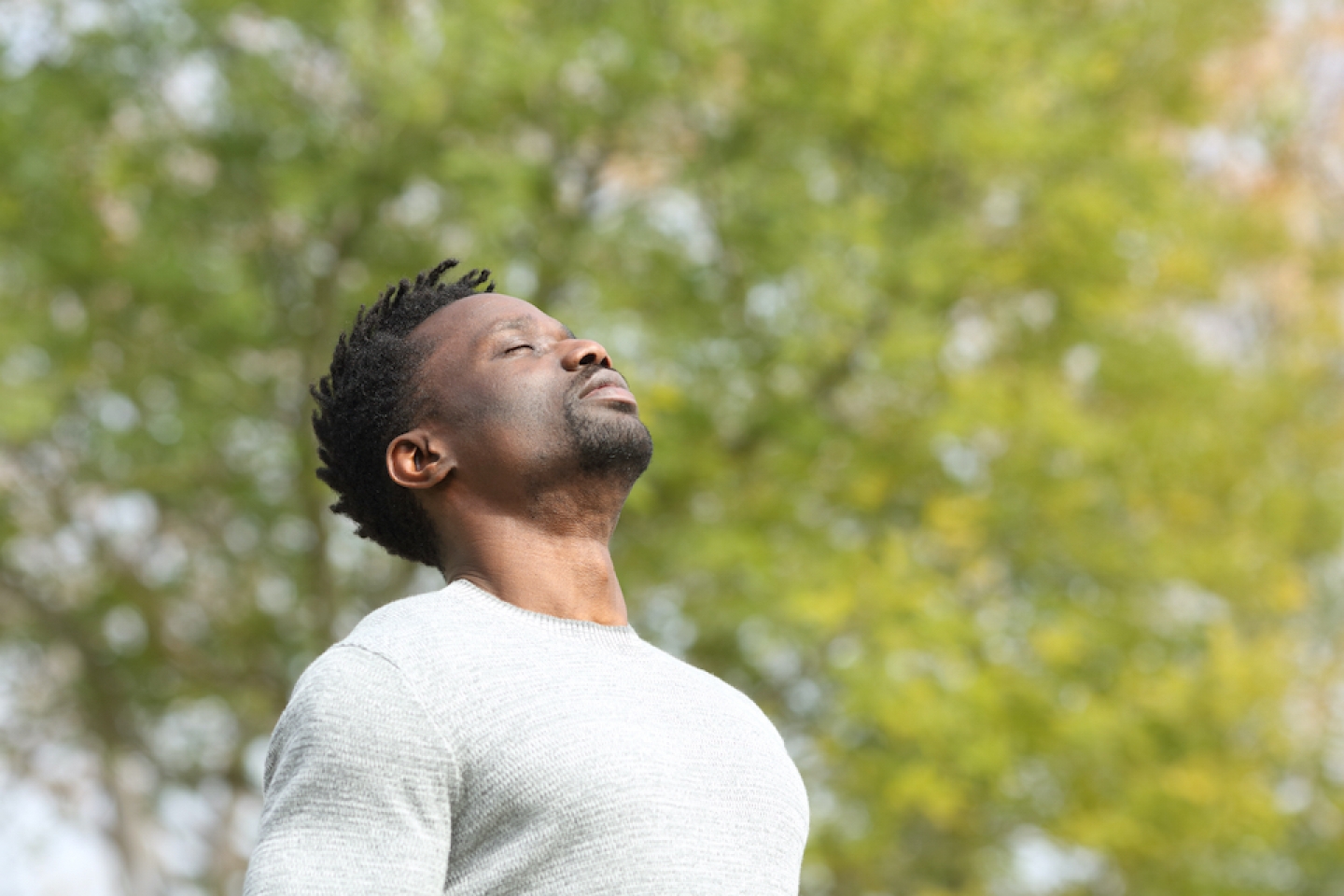
Conclusion
We hope you learned something new about how breathing can affect your mental health and well-being. Breathing is not just a basic function of our body, but also a powerful tool to manage our emotions and stress. By practicing deep breathing exercises, you can improve your mood, lower your blood pressure, boost your immune system, and feel more relaxed and calm. Deep breathing can also help you cope with anxiety, panic attacks, and other mental health issues.
There are many types of deep breathing techniques that you can try, such as abdominal breathing, alternate nostril breathing, 4-7-8 breathing, and box breathing. Each one has its own benefits and instructions, so you can choose the one that suits you best. You can also use apps, music, or aromatherapy to enhance your deep breathing experience. The key is to find a comfortable position, breathe through your nose, focus on your breath, and do it regularly.
Deep breathing is a simple and effective way to improve your mental health and well-being. It doesn’t cost anything, it doesn’t take much time, and it doesn’t have any side effects. All you need is yourself and your breath. So why not give it a try? You might be surprised by how much better you feel after a few minutes of deep breathing. Remember, you are not alone in your struggle with anxiety and mental health. Tropika Club Magazine is here to support you and provide you with useful tips and resources. Stay tuned for more articles on how to live a happier and healthier life with Tropika Club Magazine.

Frequently Asked Questions (FAQ)
Q: What is anxiety and how common is it in Singapore?
Anxiety is a normal reaction to stress that can help a person be better prepared in dealing with a tense situation. However, when anxiety becomes overwhelming and interferes with your daily activities, it becomes a disorder. Anxiety disorders can affect adults, as well as children and adolescents. According to the Singapore Mental Health Survey (2010), about 10 per cent of the population in Singapore suffer from anxiety and depressive disorders. It took an average of 6 to 9 years for persons with anxiety disorders to seek help from the onset of illness.
Q: What are the common types of anxiety disorders?
The common types of anxiety disorders include:
- Social phobia: a fear of being judged or embarrassed in social situations
- Generalised anxiety disorder (GAD): excessive and persistent worry about various aspects of life
- Panic disorder: recurrent and unexpected panic attacks that cause intense fear and physical symptoms
- Obsessive-compulsive disorder (OCD): unwanted and intrusive thoughts, images or impulses that cause anxiety and compulsive behaviours to reduce the anxiety
- Post-traumatic stress disorder (PTSD): a condition that develops after experiencing or witnessing a traumatic event that involves death, injury or violence
Q: How can deep breathing exercises help with anxiety?
Deep breathing exercises can help with anxiety by activating the body’s relaxation response, which counteracts the stress response. Deep breathing can lower your heart rate, blood pressure, muscle tension and cortisol levels. It can also increase your oxygen intake, improve your mood and focus, and reduce your negative thoughts and emotions.
Q: How do I perform deep breathing exercises?
There are different types of deep breathing exercises that you can try, such as:
- Diaphragmatic breathing: breathe deeply from your abdomen, expanding your diaphragm as you inhale and contracting it as you exhale
- Box breathing: breathe in for four counts, hold for four counts, breathe out for four counts, hold for four counts, and repeat
- 4-7-8 breathing: breathe in for four counts, hold for seven counts, breathe out for eight counts, and repeat
- Alternate nostril breathing: use your thumb and index finger to close one nostril at a time, and breathe in and out through the other nostril alternately
To perform any deep breathing exercise, you should:
- Find a comfortable and quiet place to sit or lie down
- Relax your shoulders, neck and jaw
- Place one hand on your chest and the other on your stomach
- Breathe slowly and deeply through your nose
- Feel your stomach rise and fall with each breath
- Focus on your breathing and let go of any distracting thoughts or feelings
- Do this for at least 10 minutes a day or whenever you feel anxious
Q: Where can I get help for my anxiety disorder in Singapore?
If you think you have an anxiety disorder or if your anxiety is affecting your daily functioning and relationships, you should seek professional help as soon as possible. You can consult your family doctor or a psychiatrist who can diagnose your condition and prescribe medication if needed. You can also see a psychologist or a counsellor who can provide psychotherapy or counselling to help you cope with your anxiety. Some of the places where you can get help for your anxiety disorder in Singapore are:
- The Department of Psychiatry at Singapore General Hospital (SGH)
- The Institute of Mental Health (IMH)
- The Singapore Association for Mental Health (SAMH)
- Dr BL Lim Centre For Psychological Wellness – Psychiatrist Singapore
- Anxiety Expert Aaron Ngoh Panic attack expert
You can also visit HealthHub for more information and resources on anxiety disorders.
Meanwhile, Check Out Tropika Club’s Ecosystem of Websites

Tropika Club Magazine – Tropika Club Magazine is a Singapore-based publication that features articles on a wide range of topics with a focus on local businesses and content for the region. The magazine emphasizes supporting local businesses through its #SupportLocal initiative, which includes coverage of everything from neighborhood hawker stalls to aesthetic clinics in town. In addition to highlighting local businesses, Tropika Club Magazine also covers a variety of local content, including beauty, lifestyle, places, eats, and what’s on in Singapore and the Asia Pacific region.
Tropika Club Deals – Tropika Club Deals is a leading online deals and voucher shopping site in Singapore, offering amazing discounts on beauty, wellness, and fitness products and services. It’s the perfect platform for customers who want to discover the best deals without having to commit to a specific appointment date and time. These deals are available at major beauty stores, facial salons, hair salons, and other brands in Singapore, with no minimum spend required. Choose from guaranteed discounted deals in the categories of hairstyling, hair removal, facial & aesthetics, body slimming, brows & lashes, nails & makeup, massage & spa or fitness & wellness. Tropika Club Deals is also ideal for customers who want to buy vouchers as gifts or to use for the future. So whether you’re looking to save money on your next haircut or want to treat yourself to a relaxing massage, Tropika Club Deals has got you covered with the best voucher and coupon deals in Singapore!



